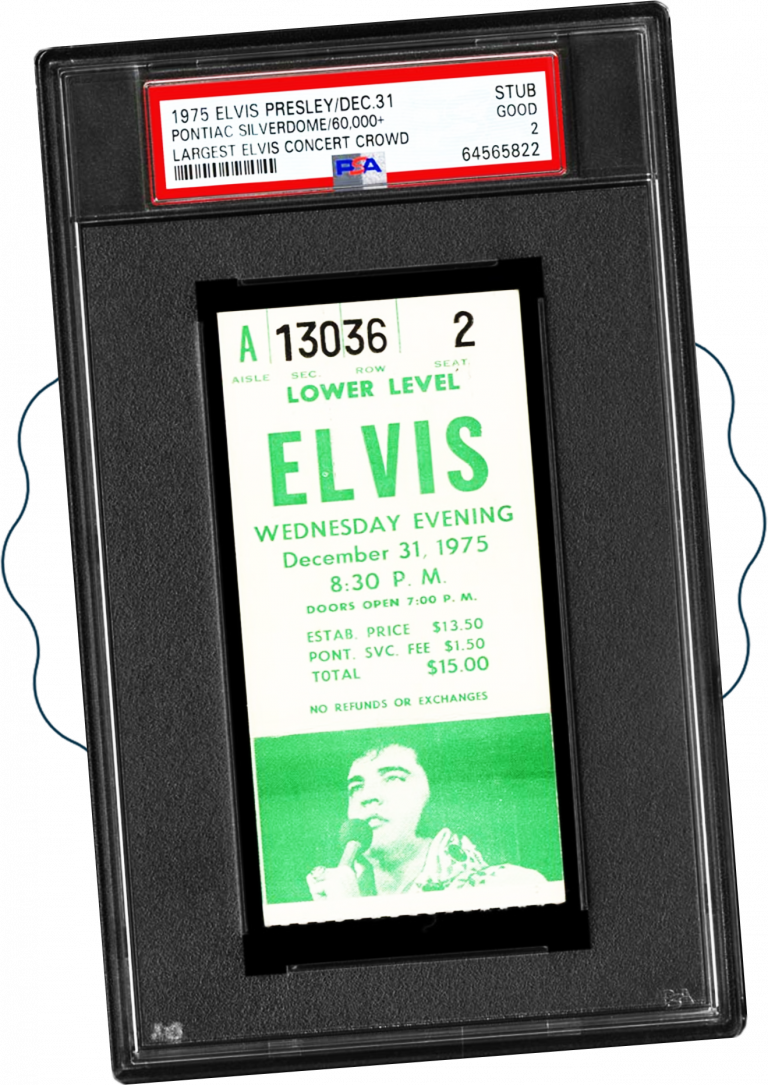

Whether you’re a fan who’s exploring the realm of collectibles, or a seasoned collector, it is important to understand that when it comes to memorabilia, two crucial aspects are usually considered: Authentication and Grading. Understanding why both are important and how they are different is a fundamental skill.
AUTHENTICATION
Authentication is the process of verifying the authenticity or genuineness of an item. In the music collectibles market, where counterfeit items are known to circulate and proliferate, it is vital to authenticate every piece you consider adding to your collection. It involves examining various aspects of the item, such as its physical characteristics, materials used, signatures, markings, and any accompanying documentation or provenance. The goal of authentication is to determine whether the item is indeed what it claims to be. Experts or third-party authentication services are typically involved in this process, utilizing their knowledge, and access to reference materials and databases to make an informed judgment or in most cases, a guess. In response to the numerous cases of fraudulent behavior, new authentication standards have been introduced that combine various layers of technology and human observation to create authentication processes that are nearly impossible to replicate.

GRADING
Grading focuses on assessing the condition or quality of an item. Grading is often associated with collectibles like trading cards, coins, stamps, or comic books, where there are often a high number of the same item produced and therefore the item’s physical state significantly impacts its value and desirability. Graders evaluate various factors such as the item’s overall condition, potential damage, wear and tear, completeness, and any flaws or imperfections to assign them a grade (based on a standardized scale) that reflects their condition. Grading allows collectors to understand the condition of their memorabilia and aids in determining its value and desirability. While traditional authentication validates the provenance of an item to a certain level, grading provides an objective assessment of an item’s physical state regardless of its history. Both processes can provide valuable information to collectors and potential buyers, helping them make informed decisions about the value and legitimacy of what they own or what they are looking to purchase.
It’s worth noting that different types of memorabilia may have specific authentication and grading procedures associated with them, and as a collector you should avoid basing your authentication solely on opinions or estimates, which can be subjective and lack the necessary expertise. By establishing the item’s provenance and verifying its connection to a specific artist or event, legitimate authentication offers peace of mind that you own a genuine piece of [music] history that will maintain value.
The Realest is the first dedicated marketplace and authentication standard for music memorabilia. Sourcing items directly from artists and powered by cutting edge authentication technology and blockchain-based provenance, The Realest is making it easier and safer for fans and collectors to own a real piece of music history. Find out more on TheRealest.com